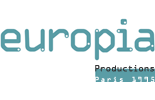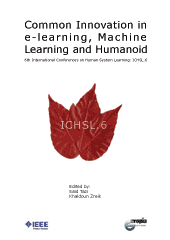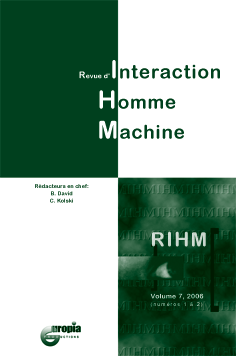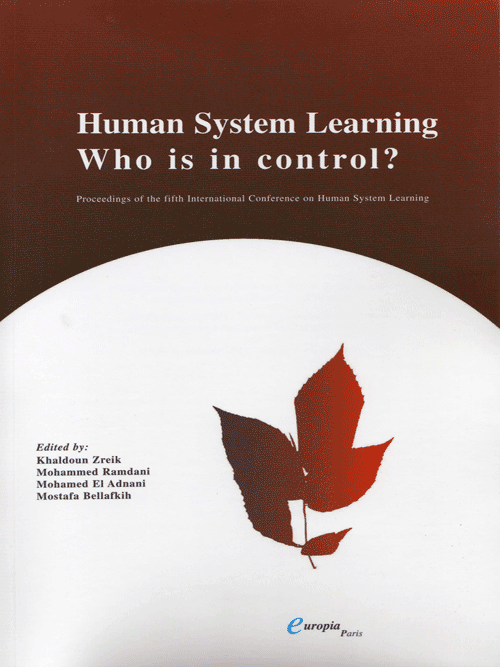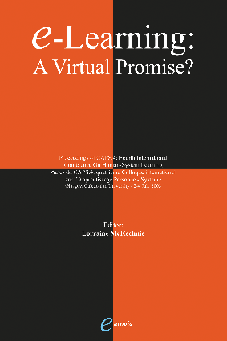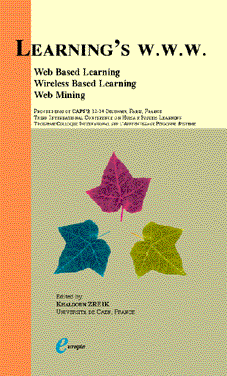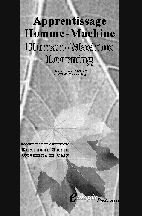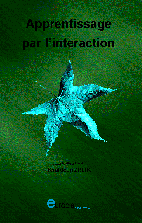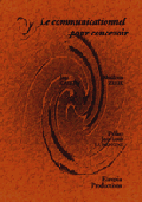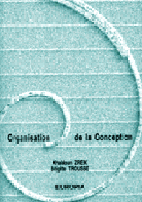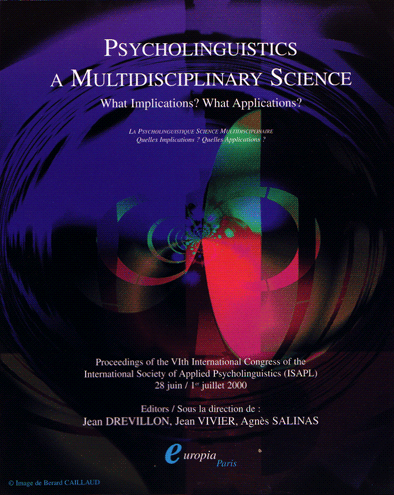| Sommaire / Contents
Introduction
Jean DREVILLON
Invited speakers
Une analyse psycholinguistique : vie, personnalité, langage
Tatiana SLAMA-CAZACU
Mysteries about superordinates
Leonor SCLIAR-CABRAL
Adult Offer, Child Inference and Uptake : Preliminaries to an Account of Lexical Acquisition
Eve CLARK
Deux champs d'application de la psycholinguistique : l'apprentissage de la langue écrite et la conception d'écrits techniques
Michel FAYOL
Les stratégies intentionnelles des thérapeutes
Alain BLANCHET
Le psycholinguiste face à l’intérêt d’une politique éducative tout au long de la vie et d’une intervention langagière continue auprès de personnes (très) âgées
Maria da Graça PINTO
Teaching Second/third languages in primary school from psycholinguistics to pedagogical solutions
Renzo TITONE
Section 1 : Speech Comprehension and Production
The role of head nouns in conceptual combination
Nicoletta CARAMELLI, Anna BORGHI (Italie)
La gestion des aspects spécifiques de l’écrit présente-t-elle encore un coût cognitif chez l’adulte ?
Béatrice BOURDIN, Michel FAYOL, Véronique ANSEL (France)
Modalization in language : theoretical landmarks with a psychological perspective
Claudine DAY (France)
The use of connectives in different narrative genres during childhood
Maria Rosa SOLE PLANAS, Olga SOLER VILAGELIU (Espagne)
Les effets de primauté et de récence dans les rappels écrits de narrations [+/– connu]
Sophie GONNAND (France)
Rôle de la mémoire de travail dans les processus d’intégration au cours de la lecture
Stéphane Bazire (France)
Les traits structuraux de la compétence scripturale narrative chez des élèves chiliens
Juana MARINKOVICH - RAVENA (Chili)
Section 2 : First Language Acquisition
The role of decentration in language acquisition
Galina DOBROVA (Russie)
Phrases complexes et niveaux de compétences métalinguistiques chez les enfants de 4 à 9 ans
Ionna BERTHOUD - PAPANDROPOULOU, Carole SAVIOZ (Suisse)
Interpréter des énoncés négatifs : une étude auprès d'enfants de 7 à 10 ans, dans une situation dialogique
Stéphanie BOUZIGUE, Monique VION (France)
Psycholinguistique et prosodie : procédures de topicalisation chez des sujets en phase d’acquisition du langage
Karine MARTEL (France)
Le développement de l'imitation vocale / verbale
Jacky LENEVEU, Jean VIVIER (France)
Comprehension of Utterance Modalities in French Preschool and School Children : the Use of Intonative and Morphosyntatic Marks
Isabelle MAILLOCHON, Dominique BASSANO (France)
The sequence of question forms acquisition by Russian children
Victoria KAZAKOVSKAJA (Russie)
Learning to explain : A speciflcally pragmatic acquisition
Edy VENEZIANO (France)
Semantic distribution of French-speaking children’s first words
Sophie KERN (France)
Section 3 : Dialogue
Oral interaction and dialogism ways to a critical reader development
Valeria MELLO FREIRE (Brésil)
Conversational silence and politeness
Michela CORTINI (Italie)
Non-verbal components as a part of physician-patient communication (to register and monitor a disease syndrome)
Andreana Efftimova PREDOEVA (Bulgarie)
Explicitation methodology for the study of interpretation in dialog
Béatrice CAHOUR, Laurent KARSENTY (France)
La compréhension inférentielle et ses avatars
Daniel BRIXHE (France)
Etude des procédés interlocutoires impliqués dans une situation de gestion d’un incident
Marie-France AGNOLETTI, Valérie SAINT-DIZIER (France)
Section 4 : Bilingualism and Translation
Translating and storytelling
Franck BARBIN (France)
The LA/LL Status of Bilinguals in Correlation with the Results of a Bilingual Stroop Test
Elly BROSIG (Allemagne)
Apprentissage précoce d'une deuxième langue et développement de la conscience linguistique
Elisabeth DEMONT (France)
Approche psycholinguistique de la traductologie
Christine DURIEUX (France)
L'ethos collectif dans la communication interculturelle
Milena SRPOVA (France)
Section 5 : Foreign language learning
Content and form evidence for multilingual vocabulary storage systems
Danuta GABRY'S (Pologne)
Apprentissage du roumain par les cadres français expatriés en Roumani
Michaela GULEA (Roumanie)
Syntactic barriers in the comprehension of a simple sentence : an experimental study in Russian as L2
Natalia IGNATIEVA, Saniya MAJMITOVA (Mexique)
Dans le cadre de l'enseignement du Français langue étrangère à l'école primaire, une unité thématique : "Pierre et le loup"
Anne GHESTIN (Italie)
Frequency of Target Language Production and its Relationship to Learning Strategy Choices
Tammy GREGERSEN (Chili)
Dynamic visualization in the teaching of the foreign languages
Nickolai ALAMEV (Russie)
Public directives in Russian, English, and German : an assessment of morphosyntactic forms and underlying cultural models 287
Vera ARINSHTEIN (Russie)
Word recognition and language competenc
Janusz ARABSKI (Pologne)
Foreign language learning in a multilingual environment
Agnes SZABO (Yougoslavie)
Distorted perception and production of L2-German vowels by adult Italian learners
Federica MISSAGLIA (Italie)
Section 6 : Language disorders
For a pragmatic study of clinical interactions
Nadine PROIA (France)
L’absence de son et son avantage
Eulalia FERNANDES (Brésil)
Evaluation des capacités implicites de mémoire et d'apprentissage chez les dyslexiques
Véronique QUAGLINO, Béatrice BOURDIN (France)
Développement gestuel / développement verbal : Peut-on parler de continuité ? Une étude comparative entre enfants ordinaires et trisomiques 21
Sylvie Eva LAROCHE (France)
Présentation d'une grille d'analyse des capacités de communication des patients atteints d'une maladie d’Alzheimer
Thierry ROUSSEAU (France)
Détérioration lexico-sémantique et maladie d'Alzheimer : à propos des énoncés référentiels
Géraldine HILAIRE, Bernard CROISILE (France)
Section 7 : Mass Communication Media
Politics and Advertisement : analysing the rhetorical strategies and the persuasive devices in the Italian political advertising
Amelia MANUTI (Italie)
Le rôle du conducteur dans l’interaction conflictuelle médiatique 361
Renata GALATOLO, Marina MIZZAU (Italie)
The dialogism and the interaction face to face in the TV
Eliana Vianna BRITO (Brésil)
Les "Questions de Cœur" à gestion médiatisée. Une analyse diatextuelle
Giuseppe MININNI (Italie)
Intégration des différences individuelles dans la conception et la gestion des hypermédias. Suggestion par le projet STEMP (Studenti a TEMpo Parziale)
Linda LAGHI (Italie)
Section 8 : Semiotics and literary text analysis in a psycholinguistic approach
The Cognitive-pragmatic interface of emotive communication :
the case of the personal letter
Diane PONTEROTTO (Italie)
Recherche pragmatique, recherche romanesque et métacommunication chez Nathalie Sarraute : “Ouvrez“
Carmen LICARI (Italie)
The way language shapes speaker´s cognition
Iva NEBESKA (République Tchèque)
D’une conception phénoménologique de l'émotion étayée par le fait linguistique familier
Jackie SCHÖN (France)
Section 9 : Language, Communication and Education
" Un Enfant dans le vieux Bucarest " - analyse contextuelle dynamique
Olga DUTU (Roumanie)
Chilean school childrens’ metacomprehension knowledge
Marianne PERONARD THIERRY (Chili)
The influence of school instruction in children’s concept formation
Héloisa STEFAN, José Marcelino POERSCH (Brésil)
The brain-compatible teaching of reading scientific literature (demonstration of a manual)
Margarita KOSILOVA (Russie)
Les aptitudes préalables à la lecture par une nouvelle approche analytique
Isabel CUADRADO - GORDILLO, Inmaculada FERNANDEZ – ANTELO (Espagne)
Symbolism or connexionism ? – Cognitive processes in reading
José Marcelino POERSCH (Brésil)
Inférences locales et globales dans la compréhension de textes expositifs
Stéfania STAME (Italie)
SYMPOSIA
SYMPOSIUM : Psycholinguistics considered as science and as art.
Organisateur
Jose Marcelino POERSCH
Psycholinguistics considered as science and as art
How can psycholinguistics be turned into art
José Marcelino POERSCH (Brésil)
Teaching/learning process : reciprocal changes between message structures and mental states of communication partners 457
Anamaria KURTZ - WELP, Liane ZANESCO, Valeria RAYMUNDO (Brésil)
Reading and prior knowledge
Beatriz Clarice DA COSTA SÖHNGEN (Brésil)
Working memory, phonological recoding and reading comprehension
Màrcia Cristina ZIMMER ( Brésil)
The use of translation activities as an activating process of metalinguistic awareness
Adriana Angelim ROSSA (Brésil)
SYMPOSIUM : La psycholinguistique et les recherches appliquées réalisées en sciences du langage
Organisatrice
Anne NICOLLE
Modélisation du dialogue et de l'activité langagière
Anne NICOLLE (France)
Opérations de prédications dans les actes assertifs : le cas des descriptions d'itinéraires
Maria Caterina MANES GALLO (France)
Le langage est un des points focaux des convergences : une expérience vécue au carrefour de plusieurs disciplines
Violaine PRINCE (France)
Catégories spatiales, interactions langagières : apports de la psycholinguistique, interfaces et applications
Agnès SALINAS (France)
Télé-communication et référenciation
Jean VIVIER, Khaldoun ZREIK (France)
Interaction langagière et simulation en Intelligence Artificielle Distribuée
Christian BRASSAC (France)
SYMPOSIUM : TSER
Social Exclusion and Dialogue
Jean VIVIER (France)
CONCLUSION OF THE VITH ISAPL CONGRESS
Jean VIVIER
|
